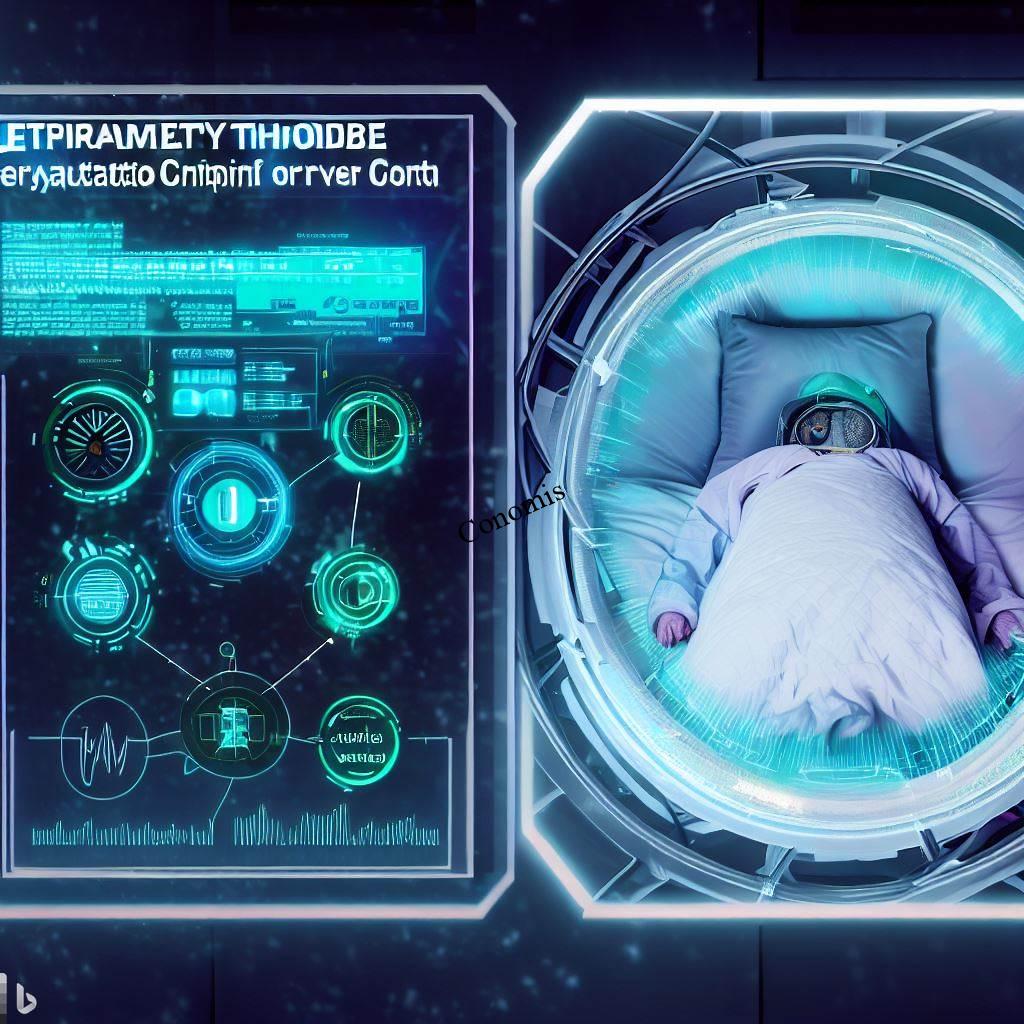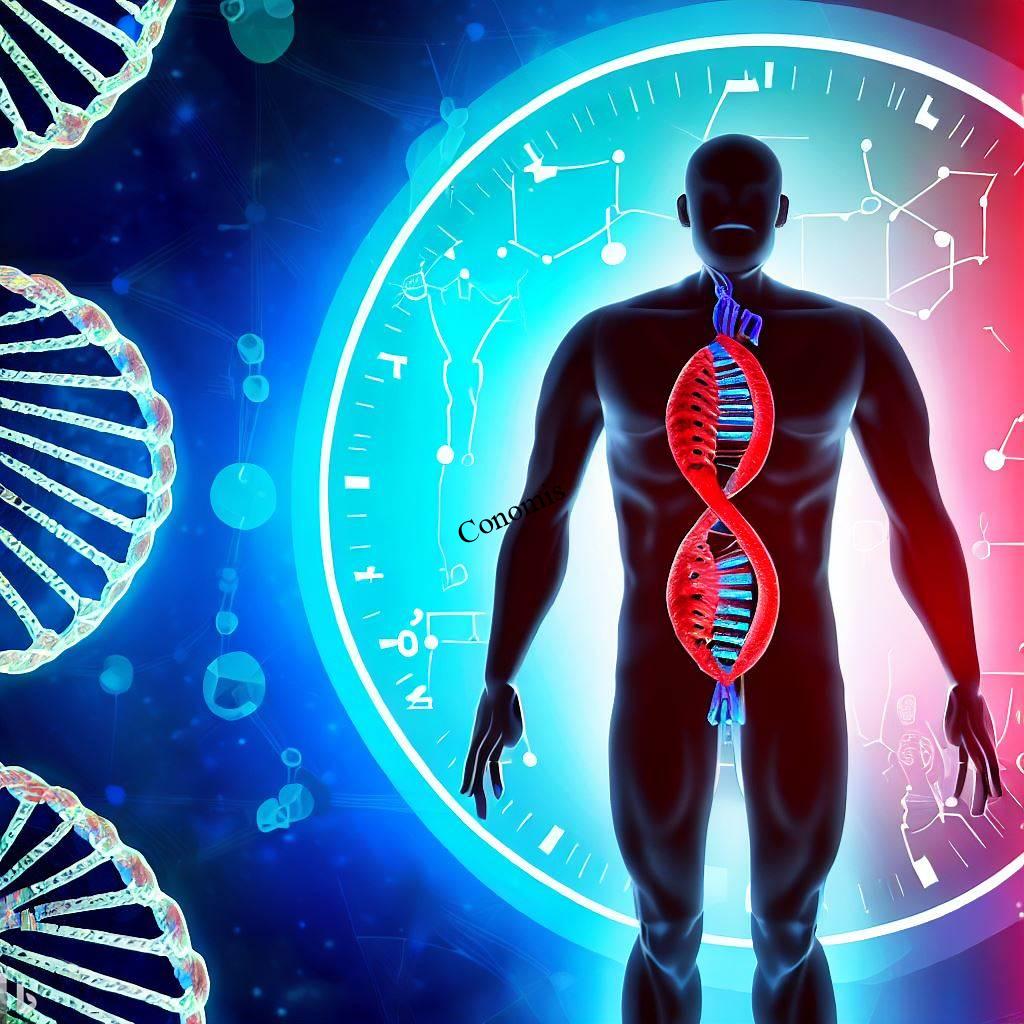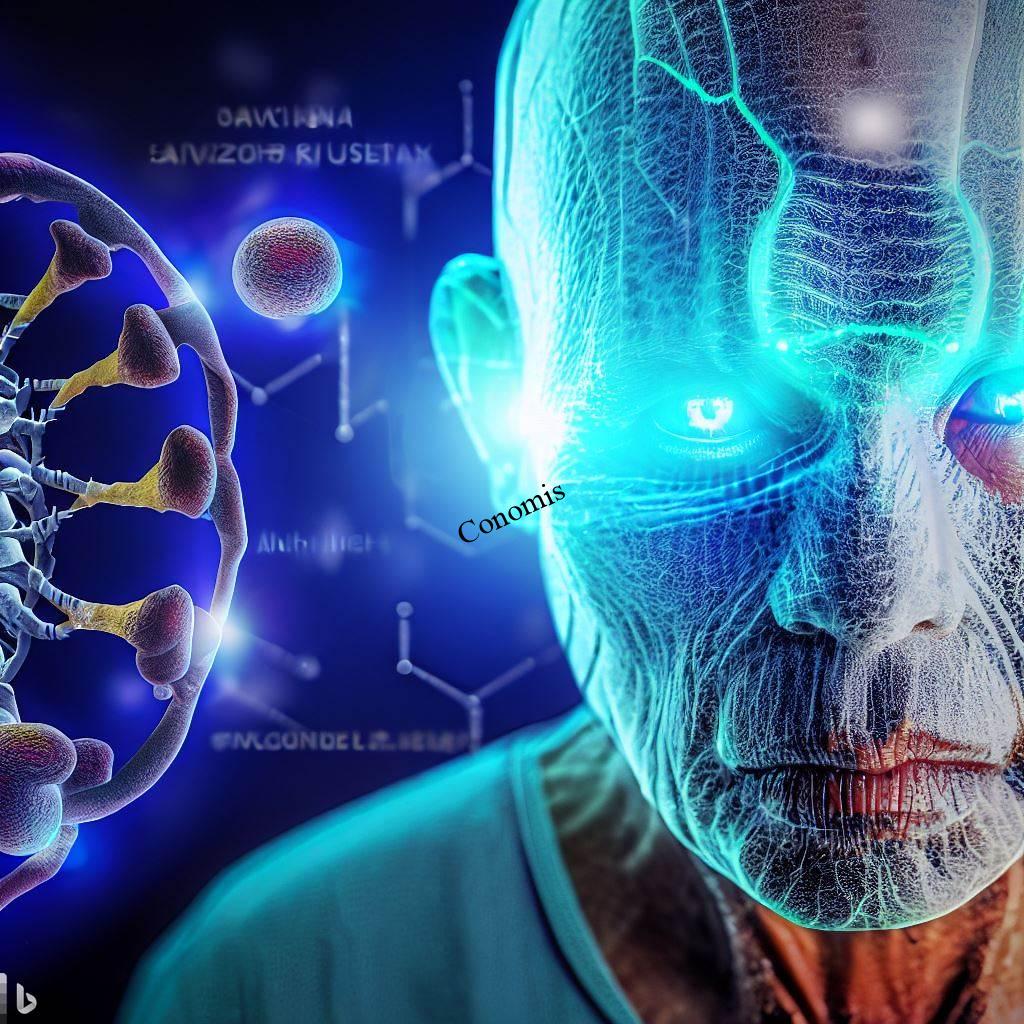Table of Contents
Introduction
In this article, we will embark on an exploration of the captivating concept of extending the human lifespan through the ingenious combination of hibernation and advanced technologies, such as AI, cybernetics, and cyborg enhancements. By drawing inspiration from nature, particularly from animals like bears that hibernate to survive harsh climates, we will delve into the possibility of applying this mechanism to humans.

The integration of cutting-edge science and technology opens up a world of possibilities for extending human life expectancy beyond its current limits. We will delve into the potential revolutionary impact of these advancements, not only on life expectancy but also on the way we perceive and approach healthcare, sustainability, and resource management.
Moreover, we will examine how prolonged human lifespans could contribute to mitigating the effects of climate change by reducing the overall human impact on the environment. Additionally, we will explore how such advancements could alleviate the strain on essential resources like food, energy, and medical care, leading to more equitable distribution and sustainable practices.
Throughout this journey, we will carefully consider the ethical implications of extending human life and the potential societal consequences, ensuring that we approach this promising concept with a balanced perspective.
Understanding Hibernation: An Age-Old Survival Mechanism
What is Hibernation?
Hibernation is a fascinating natural phenomenon observed in many animal species. It is a state of prolonged dormancy where an animal’s metabolic rate drastically drops, leading to a significant reduction in energy consumption. During hibernation, animals often retreat to safe and sheltered locations, conserving their energy throughout the harsh winter months when food is scarce.

How Do Animals Benefit from Hibernation?
Hibernation bestows numerous benefits upon animals, affording them the capacity to endure and thrive amidst challenging environmental circumstances. Through the process of entering a state of dormancy, these remarkable creatures can effectively withstand extended periods without the necessity of sustenance, hydration, or external warmth. By conserving their energy and precious resources during this dormant phase, they cultivate a remarkable resilience that enables them to reemerge into the world in a state of improved health and well-being once the conditions become more favorable.
Extending the Human Lifespan: The Concept and Challenges
Can Humans Hibernate?
While hibernation is a natural phenomenon in certain animals, it is not inherent in humans. Nonetheless, the concept of inducing hibernation in humans has fascinated researchers and scientists due to its potential benefits for extending life expectancy. The idea of harnessing this survival mechanism for humans opens up intriguing possibilities for advancing medical science and pushing the boundaries of human longevity. By exploring the application of hibernation and leveraging advanced technologies, such as AI and cybernetics, we may uncover new avenues to enhance human resilience and ultimately prolong our lifespan.

Overcoming Biological and Technological Obstacles
Creating a state of hibernation in humans poses a myriad of challenges that stem from our intricate physiology, distinguishing us from animals that naturally undergo this phenomenon. Unlike their straightforward hibernation patterns, inducing hibernation in humans demands innovative and intricate approaches. Our complex biological makeup necessitates careful consideration of various factors, such as metabolic regulation, immune responses, and the preservation of vital organs during prolonged dormancy.
Nevertheless, the remarkable progress in advanced technologies, notably in the realms of AI and cybernetics, has provided glimmers of hope for overcoming these hurdles. AI’s capacity to simulate and regulate physiological functions, coupled with cybernetics’ ability to merge human biology with technology, holds the potential to optimize and control the hibernation process.

Researchers and scientists remain committed to unlocking the secrets of human hibernation, believing that success in this endeavor could revolutionize medicine and significantly extend the human lifespan. Despite the obstacles ahead, the integration of cutting-edge technologies offers a promising path to harnessing the power of hibernation for the betterment of humanity.
Embracing AI and Cybernetics: The Path to Prolonged Life
The Role of Artificial Intelligence in Human Hibernation
Artificial Intelligence (AI) assumes a pivotal role in the monitoring and regulation of the hibernation process in humans. Leveraging its computational power and capacity for learning, AI can simulate and mimic natural bodily functions, contributing to the successful induction and maintenance of a stable hibernation state. This advanced technology can closely monitor vital signs, metabolic rates, and other physiological parameters, ensuring that the hibernating individual remains in optimal condition.

Additionally, AI can actively adjust and modulate environmental factors to create an ideal hibernation environment. Temperature, humidity, and lighting can be precisely controlled to support the hibernation process, maximizing its effectiveness and safety. By imitating the intricate balance of natural hibernation, AI enables researchers and medical professionals to fine-tune the process for each individual, taking into account their unique physiological characteristics.
The integration of AI into hibernation research not only enhances our understanding of the complexities involved but also provides the potential for personalized hibernation treatments. Moreover, AI’s ability to continuously adapt and learn from data ensures that hibernation protocols can be continually refined and optimized over time.

As we strive to unlock the secrets of human hibernation, AI stands as a valuable ally in the quest to extend human lifespans and explore new frontiers in the fields of medicine and life sciences. Its indispensable role in monitoring and regulating the hibernation process paves the way for a future where this extraordinary mechanism can be harnessed to significantly benefit humankind.
Merging Man and Machine: The Rise of Cyborgs
The intriguing concept of merging human biology with advanced technology has given rise to the emergence of cyborgs, beings that combine organic and artificial elements. Cyborgs represent a groundbreaking frontier in human enhancement, blurring the lines between humans and machines. One fascinating possibility that arises from this integration is the potential for cyborgs to undergo hibernation more effectively than natural humans.

With cybernetic enhancements seamlessly integrated into their physiology, cyborgs may possess superior control over their metabolic processes and bodily functions. This heightened level of control could enable them to enter and maintain a hibernation state more efficiently, potentially prolonging their lifespan and enhancing their resilience in challenging environments.
The prospect of cyborg hibernation opens up uncharted territories in the quest for extending human life expectancy. By pushing the boundaries of human capabilities through the merger of man and machine, we may unlock new frontiers in medical science and human potential. However, ethical considerations surrounding cyborg enhancements and their impact on society must be thoroughly explored to ensure responsible and equitable implementation.
As we delve deeper into the realm of human-machine integration, cyborgs represent a fascinating intersection between biology and technology, offering tantalizing glimpses of what the future holds for human enhancement and the pursuit of a prolonged lifespan. The realization of cyborg hibernation may lead to transformative advancements, revolutionizing our understanding of human potential and offering unprecedented possibilities for the future of humanity.
Enhancing Human Biology: Unlocking the Potential
Genetic Modifications for an Extended Lifespan
Genetic engineering stands at the forefront of modern science, offering a promising avenue for potentially altering human genes linked to aging and longevity. The tantalizing prospect of manipulating our genetic makeup opens up a realm of possibilities, particularly in the quest for extending human life.
Scientists embark on the endeavor of identifying specific genes that play pivotal roles in the aging process and influence our lifespan. By understanding the intricate mechanisms behind aging, they hope to unlock the secrets to significantly prolonging human life.
Through precise and targeted modifications, genetic engineers can potentially enhance the body’s natural defenses against age-related deterioration and optimize cellular functions. The goal is to mitigate the effects of aging, such as cellular damage and a decline in regenerative capacity, thus extending the health span and overall lifespan.

However, with the immense power of genetic engineering come profound ethical considerations. As we tread this groundbreaking territory, it is imperative to ensure responsible and careful implementation to avoid unforeseen consequences.
While the potential benefits of genetic engineering are tremendous, the field remains complex and ever-evolving. Scientists must continue their meticulous research and rigorous ethical discourse to balance the promise of extended human life with the necessity for ethical guidelines and societal considerations.
In this dynamic scientific landscape, the journey to uncovering the secrets of human longevity through genetic engineering holds transformative possibilities, shaping the future of healthcare, aging, and the very essence of what it means to be human.
Boosting Human Resilience through Biotechnology
The remarkable progress in biotechnology offers a glimpse into a future where human resilience can be significantly enhanced, potentially leading to longer and healthier lives. Biotechnological advancements hold the key to developing innovative treatments that bolster the human body’s capacity to endure the stresses associated with hibernation, ultimately extending our lifespan.
Through cutting-edge research, scientists are delving into the intricacies of biological processes to identify potential targets for intervention. By understanding the mechanisms that underlie stress responses and cellular repair, they aim to develop therapies that fortify the human body against the challenges posed by hibernation.

The application of biotechnology may involve the creation of specialized compounds or gene therapies that promote cellular rejuvenation and bolster the body’s ability to recover from prolonged dormancy. These treatments could enhance organ function, improve immune responses, and minimize cellular damage during hibernation, thereby increasing the odds of a successful and extended hibernation period.
Moreover, the same biotechnological innovations that enhance resilience for hibernation could have broader implications for human health and aging. The potential to mitigate the effects of age-related degeneration and enhance overall health span may revolutionize the field of medicine, ushering in a new era of proactive healthcare and disease prevention.
As with any transformative scientific pursuit, ethical considerations surrounding the use of biotechnology are paramount. Striking a balance between progress and responsible implementation is essential to ensuring that the advancements benefit humanity ethically and equitably.
In this rapidly advancing landscape, biotechnology’s potential to augment human resilience opens doors to a future where we can embrace hibernation as a means of extending our lives while simultaneously elevating our understanding of human biology and paving the way for a healthier and more resilient society.
The Hibernation Process and Its Impact on Life Expectancy
Implementing Controlled Hibernation Cycles
For human hibernation to be safe and effective, it is crucial to establish controlled cycles. These carefully regulated cycles enable individuals to enter and exit hibernation at specific intervals and for predetermined periods. By closely monitoring the hibernation process, researchers and medical professionals can optimize the conditions for the individual’s well-being and ensure that they emerge from hibernation in a healthy state.

Implementing controlled cycles minimizes the risks associated with extended dormancy and allows for better understanding and management of the physiological changes that occur during hibernation. Through these controlled hibernation cycles, the potential for extending the human lifespan and exploring the benefits of hibernation becomes a promising avenue for future scientific advancements.
Calculating the Potential Lifespan Increase
Predicting the precise increase in human lifespan through hibernation poses significant challenges due to the complexity of the factors involved. The duration and frequency of hibernation cycles are crucial determinants in this regard. The varying lengths of hibernation periods and the number of cycles an individual undergoes can greatly impact the overall extension of life expectancy.

Additionally, individual physiological differences, responses to hibernation, and the influence of advanced technologies all play pivotal roles in the outcome. As researchers continue to explore and refine hibernation techniques, a clearer understanding of the potential for lifespan extension may emerge. Nevertheless, the intricacies of human biology and the interplay of numerous factors underscore the need for comprehensive research and cautious optimism as we venture towards unlocking the possibilities of an extended human lifespan through hibernation.
Advantages and Implications of an Extended Lifespan
Reducing the Pace of Climate Change
Extended human lifespans offer the potential to create a more sustainable world. Longer lives could lead to reduced human impact on the environment and decreased consumption of natural resources. People may adopt eco-friendly practices, invest in research, and promote responsible resource management. However, achieving this outcome requires collective efforts and careful consideration of challenges that arise with an aging population. Embracing this opportunity can foster a harmonious coexistence between humanity and the environment.

Alleviating Resource Pressure
Extended human lifespans can lead to decreased resource consumption, benefiting resource management and distribution. Longer-lived individuals may adopt sustainable practices, reducing wastefulness and optimizing resource usage. Advances in medical care might lessen the burden on healthcare systems. The prospect of a longer future could drive investments in renewable energy, sustainable agriculture, and waste management. However, careful planning is essential to address challenges posed by an aging population. Collaborative efforts are necessary to ensure equitable resource allocation and social support. Embracing this opportunity can create a more sustainable world, where human progress harmonizes with the preservation of our planet’s resources.
Ethical Considerations and Societal Impact
Addressing Ethical Concerns
The prospect of extended lifespans raises ethical dilemmas such as resource allocation, social equity, and individual choice regarding life extension.

The Socioeconomic Consequences
Prolonged human lifespans could significantly influence socioeconomic dynamics, including retirement age, workforce participation, and intergenerational relationships.
The Future Possibilities of an Extended Lifespan
Exploring Beyond Our Current Understanding
The pursuit of extending human lifespans through hibernation and advanced technologies opens the door to uncharted territories and new possibilities for humanity.

A World of Infinite Opportunities
If successful, the realization of extended lifespans could unlock a future where individuals have more time to pursue personal goals, contribute to society, and explore the wonders of existence.

Conclusion
The concept of extending human lifespans through hibernation and advanced technology remains a captivating and visionary idea. While significant challenges and ethical considerations lie ahead, the potential benefits are vast. By embracing AI, cybernetics, and biotechnology, humanity may pave the way for a future where our lives are prolonged, impacting the world positively and leading to a new era of exploration and understanding.

FAQs
Can humans hibernate naturally?
No, hibernation is not a natural ability of humans. However, ongoing research explores the possibility of inducing hibernation in controlled settings.
What role does AI play in human hibernation?
AI can regulate and monitor the hibernation process, ensuring the safety and stability of individuals undergoing hibernation.
Could extended human lifespans impact climate change?
Yes, longer lifespans could reduce the overall human impact on the environment, potentially contributing to slowing down climate change.
Are there any ethical concerns associated with extending human lifespans?
Yes, ethical considerations involve resource allocation, societal dynamics, and individual choice regarding life extension.
What possibilities lie ahead if the human lifespan is extended?
The future could offer more time for personal pursuits, societal contributions, and further exploration of human potential.
You Can Also Read
Conomis Thoughts – Unleashing the Unimaginable: Transforming the World Beyond Limits
Human Hibernation Is a Real Possibility – The Atlantic
139-143.pmd (researchgate.net)
DADLE: A Cue to Human “Hibernation” – NASA/ADS (harvard.edu)
Myocyte degeneration and cell death in hibernating human myocardium – ScienceDirect
Conomis Thoughts
![]() Copyright 2023 CONOMIS
Copyright 2023 CONOMIS
